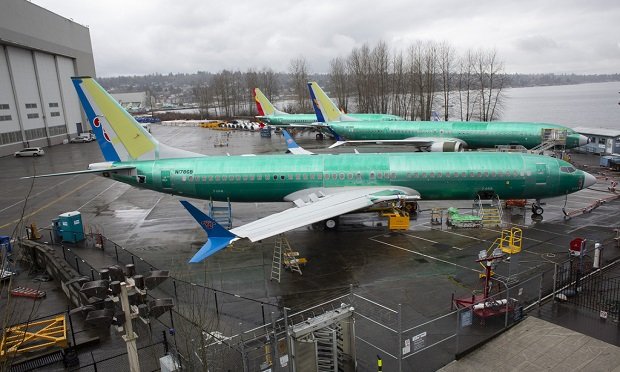Boeing Narrows Q2 Loss as Aircraft Deliveries and Revenue Surge

Boeing reported a significantly reduced loss in its second-quarter earnings for 2025, driven by a sharp increase in commercial aircraft orders, deliveries and rising revenue across key business segments. The company posted better-than-expected financial results despite ongoing labor tensions, legal scrutiny, and safety challenges.
Quarterly Earnings Improve
For the quarter ending June 30, 2025, Boeing posted a net loss of $611 million, or $0.92 per share—an improvement from the $1.44 billion loss, or $2.33 per share, reported during the same period last year. Excluding one-time charges, Boeing’s core loss stood at $1.24 per share, beating analyst estimates of a $1.54 loss, according to Zacks Investment Research.
Revenue for the quarter surged to $22.75 billion, up from $16.87 billion in Q2 2024. The improvement was largely driven by a 63% increase in aircraft deliveries—150 commercial jets delivered compared to 92 in the prior year.
Commercial and Defense Segments Grow
Boeing’s Commercial Airplanes division generated $10.9 billion in revenue, despite reporting a negative operating margin of 5.1%. The company secured 455 net new orders during the quarter, including high-profile deals with Qatar Airways and British Airways for 787 and 777-9 aircraft.
Production of the 737 has ramped up to 38 aircraft per month, with a target of 42 per month by the end of 2025. Boeing’s total backlog now stands at $619 billion, including over 5,900 commercial aircraft orders worth $522 billion.
Boeing’s Defense, Space & Security segment also saw growth, reporting $6.6 billion in revenue and a 1.7% operating margin, signaling steady demand in the defense and aerospace sectors.
Labor Strikes Loom
However, labor unrest continues to pose a challenge. More than 3,200 union workers at Boeing’s defense facilities in the St. Louis area are preparing to strike on August 4 after rejecting a proposed contract offering a 20% wage increase over four years. A cooling-off period is currently in effect. This follows a major 53-day strike last fall involving 33,000 commercial aircraft workers, which Boeing resolved by agreeing to a 38% wage increase over four years.
Safety and Legal Pressures Persist
Boeing also continues to grapple with serious safety concerns. Last month, an Air India 787 Dreamliner crashed shortly after takeoff, killing over 270 people. Although the investigation is ongoing, no mechanical faults linked to the aircraft model have been identified. Boeing President Kelly Ortberg opened the earnings call with condolences for the victims and affirmed the company’s cooperation with Indian authorities.
In June, the U.S. National Transportation Safety Board (NTSB) released findings from its 17-month investigation into the Alaska Airlines Flight 1282 door plug incident, where the panel detached mid-flight on a 737 MAX 9. The NTSB cited lapses in Boeing’s manufacturing quality control and FAA oversight.
Boeing responded by pledging to review the findings and continue its efforts to strengthen safety procedures across operations.
Despite ongoing challenges, Ortberg remains optimistic. “Our fundamental changes to strengthen safety and quality are producing improved results,” he said. “We remain focused on restoring trust, driving stability, and delivering high-quality products to our customers.”
Related News: https://airguide.info/?s=boeing, https://airguide.info/category/air-travel-business/aircraft-finance/
Sources: AirGuide Business airguide.info, bing.com, boeing.com
